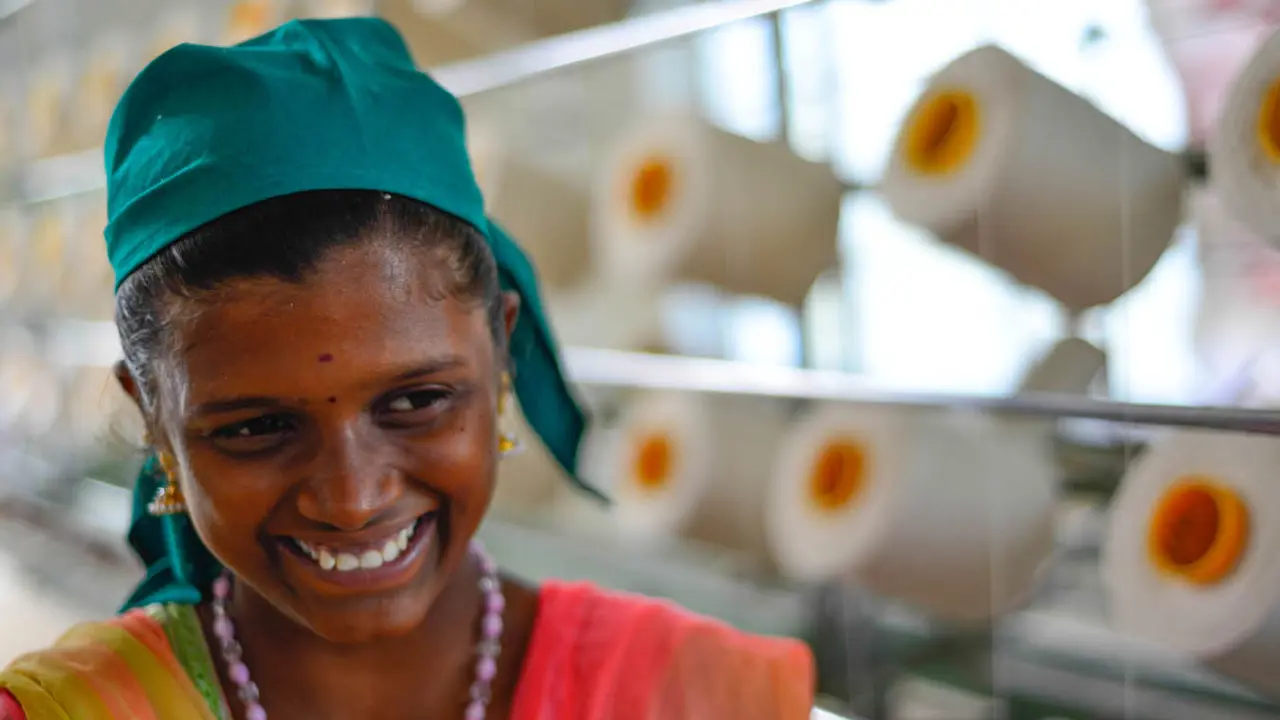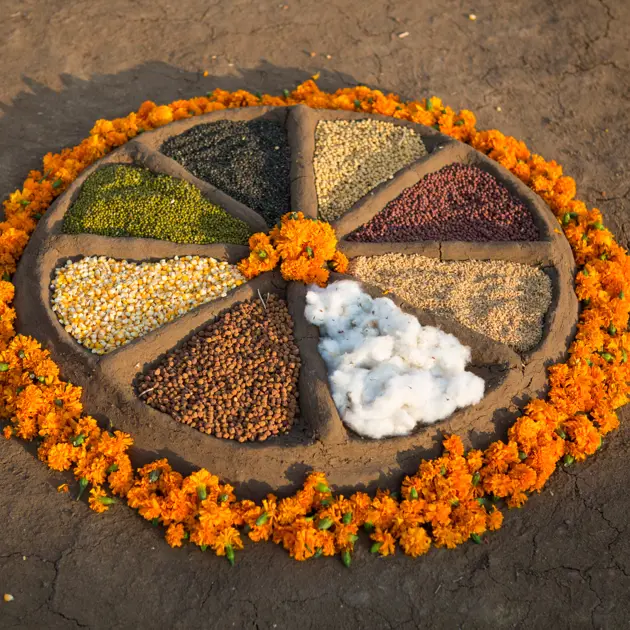An inflection point: India’s opportunity to model an inclusive circular textiles economy

The shift towards circular materials is an important step in the fashion industry’s transition towards sustainability. Significant efforts are underway to understand how textile waste can be collected and converted into circular materials. These efforts cut across both textile production and consumption countries, and focused on different intervention areas such as the financing of solutions, policy interventions, engagement with industry, creating a market for textile waste, and more.
The economic opportunity for global textile hubs like India
India is a good example of a textiles production hub that is well poised to model an inclusive circular textiles economy. It is well documented that India both receives and creates around 7.7 million tonnes of textile waste annually.
In the three years since the launch of the seminal ‘Wealth in Waste’ study by Fashion for Good, Reverse Resources, Saahas Zero Waste and Sattva, several initiatives kickstarted to advance India’s circular textile industry. While these efforts are reaping results, our civil society partners and stakeholders in the government and industry recognise the strategic opportunity to align and consolidate these efforts.
Much to the satisfaction of these stakeholders, all of whom attended India’s leading textile event Bharat Tex 2025 last week, waste and circularity was central theme at the event. Validation came in the form of the Indian Prime Minister’s address where he emphatically underscored India’s strategic opportunity to turn textile waste into an economic opportunity.

Multi-stakeholder insights and efforts to drive systems-level shifts
Laudes Foundation and its partners Canopy, Fashion for Good, and IDH set up Re-START Alliance, with the goal to bring 1 million tonnes of recycled fibres back into global supply chains by 2030.
Last week, Laudes India convened garment and textile manufacturers, fashion brands, textile waste management enterprises, investors, innovators, government and civil society organisations - to identify the gaps and align on a joint action plan to build and scale the circular textiles industry in India.
Priority actions that emerged include the need to:
-
Develop an approach that is relevant in the local context, considering what works well and strengthening what doesn’t
-
Break the finance accessibility barrier for the informal sector
-
Create inclusive policy recommendations that can support a just transition for India’s circular textile sector
-
Align the full spectrum of supply chain actors on shared goals, risk assessment metrics and KPIs to set the industry up for success and scale
8.5% of the global textile waste or ~7.7M tonnes is accumulated in India, managed by nearly ~4.5 million waste workers. More than 90% of these workers are informal.
Only in recent years have there been concerted efforts to create a circular textiles economy in India, with some of these complementary efforts spearheaded by Laudes Foundation partners, especially around setting up the supply chain for textile waste in a way that is fair and inclusive.
Needless to say, creating an entire industry around circular textiles is the long game. However, change will only be meaningful when we’re intentional about considering the voice and needs of waste workers - who remain integral to the journey towards circularity.
With innovation and inclusion working hand in hand, waste workers, now part of an informal economy, are poised to gain as textile waste becomes valued as feedstock for circular materials that fashion brands will adopt into their supply chains.
---
To learn more or join in to help achieve Re-START's goal to unlock 1 million tonnes of recycled fibres, write to fashion@laudesfoundation.org.


